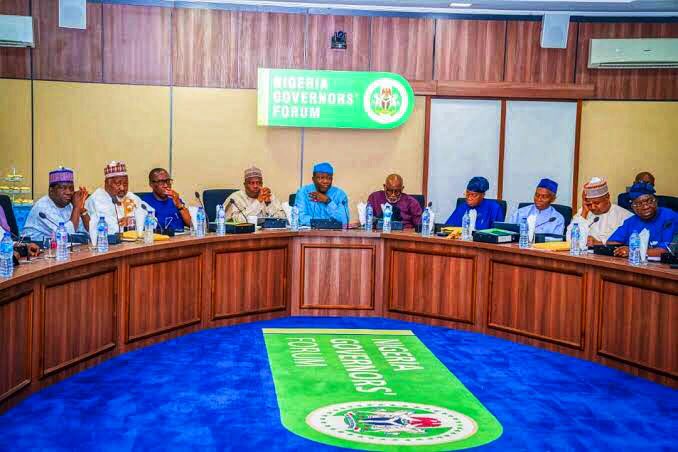The Nigeria Governors’ Forum (NGF) has launched a public finance database that will allow citizens to easily filter and analyse states’ fiscal data and information.
The database was launched on Monday at the 8th edition of the forum’s internally generated revenue (IGR) peer learning event in Abuja.
Speaking at the forum, Kayode Fayemi, governor of Ekiti state, who also doubles as the chairman of NGF, said the database was borne out of the inclination to promote accountability in governance.
“On strengthening public legitimacy for tax collection, we have improved the transparency not just around tax revenues but the entire treasury,” he said.
Advertisement
“Today, our budgets and audited financial statements are not just publicly available but also in citizen-friendly versions. This will be supported by the NGF public finance database which we will be launching today.
“A database that allows users to easily filter and analyse states’ fiscal data and information. We understand the need to build greater accountability, especially showing citizens the linkage between their taxes and service delivery.
“We are working with our revenue services and other MDAs to expand our tax-for-service initiatives in rewarding compliance while ensuring citizens know where we spend their taxes annually.”
Advertisement
Meanwhile, Fayemi attributed the increase in the internally generated revenue (IGR) of all states, over the past few years, to the implementation of administrative reforms and increased digitisation.
According to him, the innovation spearheaded the increase in the 2021 IGR from N1.3 trillion in 2019 to N1.67 trillion in 2021.
He said all governors had resolved in 2019 to embark on consensus reforms aimed at ending multiple taxation, upskilling and modernising revenue services as well as embracing a taxpayer-centric culture that strengthens the existing social contract.
“This pact birthed the state action plan for revenue generation (SAPRG), whose implementation progress we will be examining today with the objective of underscoring what has worked and what we need to do better to foster an enabling tax environment and administration that allows us to optimise our revenue potential as subnationals,” the governor said.
Advertisement
“Our pursuit to do things differently has benefitted from the relentless efforts of our state officials, technical assistance programmes within our secretariat and partners’ support. Your collaboration and support have ensured we stay the course of implementation, delivering far-reaching reforms, which have yielded the results we see today.
“We have seen total IGR of states grow from N1.31 trillion in 2019 to N1.67 trillion in 2021 and the share of IGR (as percent of total recurrent revenue) grow from 31 percent in 2019 to 35 percent in 2021. While this is good progress, we must not lose sight of the need to sustain and advance the momentum of reforms, considering the decline in FAAC receipts.
“Our renewed effort must take into consideration the emerging dynamics surrounding private income in Nigeria today including the devaluation effect of the rising inflation rate, structural transition in employment, business dealings and investments, driven by the evolution of technology.
“Beyond the laws and regulations, we have passed, we must occasionally by policy respond to the fast-changing tax environment, if we must stay ahead of evasion and avoidance tactics. We recognise the need to support our internal revenue services and continue to empower them with the necessary political support and financial resources required for them to execute their mandate effectively. We remain committed to keeping this pact. However, mutual accountability must exist – to whom much is given, much is expected.”
Advertisement
Fayemi further underscored the need for subnational governments to seek out ways to “expand the tax net and improve our taxpayer database”.
“This will require ending the proliferation of taxpayer identification numbers and databases. It is pertinent we harmonise; leveraging a unique identification number as is global best practice,” he said.
Advertisement
“For us to achieve this, information sharing between jurisdictions must be seamless, not only between the tiers of government but also inter and intra-state. I would like to encourage the joint tax board (JTB) in its pursuit for a plausible solution to this anomaly.”
On his part, Asishana Okauru, director-general, NGF, said the newly-launched portal would “host comparable annual data on government spending, revenues, and financing in all states, and will feature hundreds of performance indicators that measure the quality of public spending and the intersection of public financial management and service delivery in the country”.
Advertisement
Add a comment





